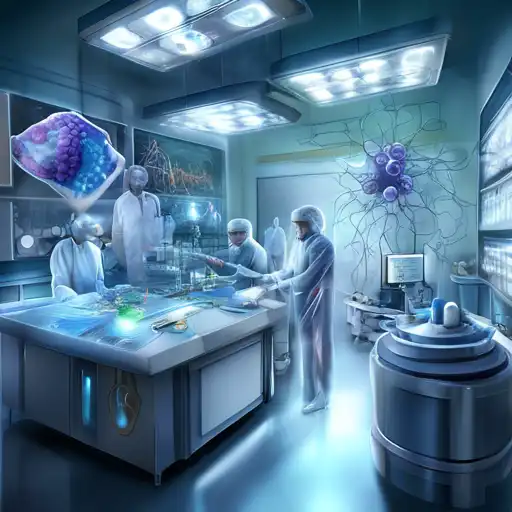Introduction to Nanotechnology in Medicine
Nanotechnology, the science of manipulating matter at the atomic and molecular scale, is set to revolutionize the field of medicine. With its ability to operate at the same scale as biological molecules, nanotechnology offers unprecedented opportunities for diagnosing, treating, and preventing diseases in ways that were once thought impossible.
The Potential of Nanotechnology in Healthcare
The application of nanotechnology in medicine, often referred to as nanomedicine, encompasses a wide range of possibilities from targeted drug delivery systems to nanoscale robots capable of repairing damaged tissues. This innovative approach promises to enhance the precision and efficiency of medical treatments while minimizing side effects.
Targeted Drug Delivery Systems
One of the most promising applications of nanotechnology in medicine is the development of targeted drug delivery systems. These systems utilize nanoparticles to deliver drugs directly to diseased cells, thereby increasing the effectiveness of the treatment and reducing the impact on healthy cells. This method is particularly beneficial in the treatment of cancer, where it can significantly reduce the side effects associated with chemotherapy.
Nanobots: The Future of Surgery
Imagine a future where surgeries are performed by tiny robots that can navigate the human body with precision. Nanobots, or nanoscale robots, hold the potential to make this a reality. These microscopic machines could be programmed to perform complex surgical procedures, repair damaged tissues, or even clear clogged arteries, all with minimal invasion.
Challenges and Ethical Considerations
Despite its vast potential, the integration of nanotechnology into medicine is not without challenges. Issues such as the long-term effects of nanoparticles on the human body, ethical concerns regarding the use of nanobots, and the high cost of nanomedicine treatments must be addressed. However, with ongoing research and development, these challenges can be overcome.
Conclusion
Nanotechnology in medicine represents a frontier of innovation that could transform healthcare as we know it. From targeted drug delivery to the potential use of nanobots for surgery, the possibilities are endless. As research progresses, we can expect nanotechnology to play an increasingly significant role in the diagnosis, treatment, and prevention of diseases, making it indeed the next big thing in medicine.
For more insights into the future of healthcare technology, explore our healthcare innovation section.
